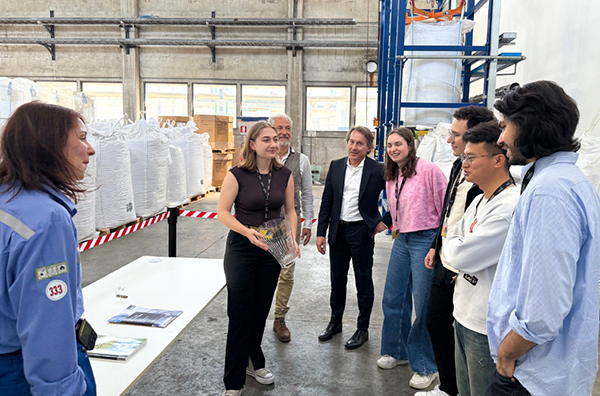
The project aimed to explore the lifecycle of transparent polymer waste and recycling in Europe, with a focus on its economic implications and potential solutions for sustainability.
The students were divided into two teams of approximately five members, so they could explore locations in the Greater Zurich region, including airports and retail centers, where polymethyl methacrylate (PMMA) and other transparent plastic materials become waste. The purpose of this project was to investigate effective methods for managing and repurposing these materials, and these visits allowed them to observe firsthand how waste is generated and managed in different environments. They studied the sources of waste and the processes involved in its collection, as well as explored ways to extend the material's lifecycle and maximize its cost-effectiveness.
One of the highlights of their journey was a visit to Trinseo's state-of-the-art PMMA depolymerization recycling facility in Rho, Italy. This advanced facility, recently established by Trinseo, features cutting-edge technology capable of recycling a wide range of PMMA waste into recycled methyl methacrylate (MMA), including acrylic cast sheets that cannot be recycled mechanically. Compared to traditional MMA manufacturing, the facility's technology demonstrated outstanding metrics in energy consumption, water usage, yield and purity—showcasing a modern and advanced approach to recycling.
To equip the students with the skills and knowledge needed to address the complex issues surrounding polymer waste, Johan Koopmans, Trinseo’s Sustainable Procurement Manager, led the program as an advisor. Throughout the program, Koopmans shared his extensive knowledge of recycling technologies and sustainable feedstocks while mentoring the students as they completed their research. Additionally, Aldo Zanetti, Trinseo's Sustainability Business Development Leader, provided the students with in-depth training on PMMA, offering insights from both a technical and commercial perspective.
A key component of their research included the development of an algorithm to scientifically calculate the efficiency of waste collection and recycling processes. This innovative approach aimed to optimize the recycling workflow so the maximum amount of waste could be repurposed effectively.
This project was more than just an academic exercise—it provided students with the opportunity to engage with real-world challenges and make a tangible impact. After months of rigorous research and hands-on experience, the students successfully completed their project. This collaboration with Trinseo provided invaluable insights into innovation, addressing real-world challenges, and culminates in comprehensive findings and proposed solutions for managing transparent polymer waste in Europe.

